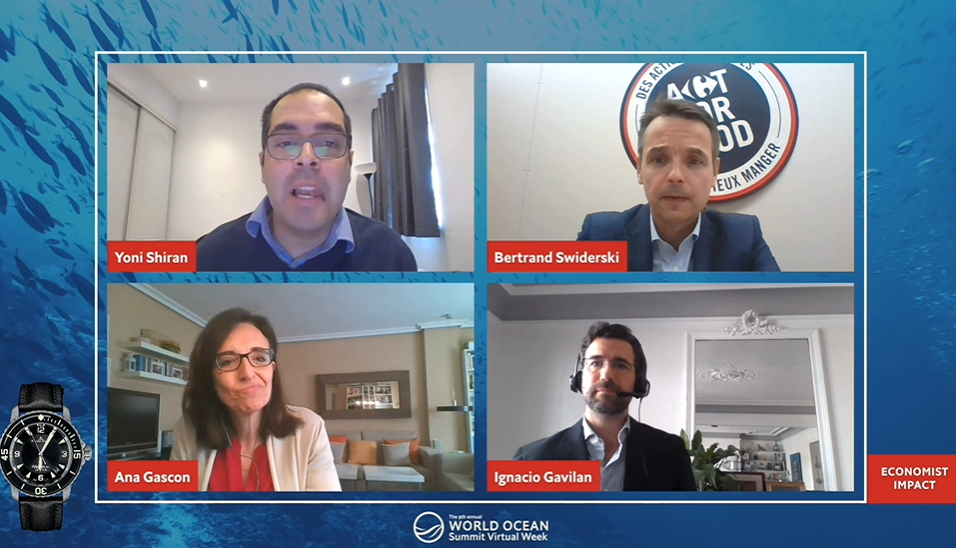On March 3rd, Director of Sustainability at The Consumer Goods Forum (CGF), Ignacio Gavilan joined a panel discussion dedicated to rethinking plastic packaging solutions at The Economist Group’s World Ocean Summit. Ignacio who oversees the CGF’s Coalitions of Action on Plastic Waste and Food Waste was invited to share his thoughts on the opportunities and challenges for packaging, and our industry’s role in minimising plastic waste.
Ignacio was joined by two industry peers from Coalition member companies, including Ann Gascon from The Coca-Cola Company, and Bertrand Swiderski from Carrefour. Moderated by Yoni Shirin, SYSTEMIQ, the session resulted in an engaging discussion around the degree of responsibility that consumer goods companies must take for shifting to reuse models , the various strategies the industry must employ to ensure a shift to a circular economy, as well as the innovations that are emerging to help solve this problem.
Bertrand began by providing the retailer perspective on the transition to the reuse model, sharing how Carrefour is rethinking packaging and the key priorities that are driving the company’s ambition to lead the way on this issue. Carrefour’s journey to tackle packaging has been consumer led, he shared, and focuses on removing unnecessary packaging, streamlining the types of plastics used, working to make sure that 100% of packaging is recyclable by 2025, and nudging consumers to change their habits, bringing packaging back to stores to be collected, cleaned and reused.
Ana then spoke about the role that The Coca-Cola Company’s is playing to address this issue. She shared that their global strategy, “World Without Waste”, is centred around three pillars: design, collection and partnerships. Collaborations are key to success, she said, and industry partners, manufacturers, retailers, NGOs must all come together to create systemic change. Ana shared her vision that companies must invest in more sustainable production models, work to increase consumer awareness, and multiply investments.
Ignacio set the scene around our industry’s “direct and very visible association” with the plastics issue, then went on to share the mission and work of the CGF’s Plastic Waste Coalition of Action. He explained that 41 members come together under the umbrella of the Coalition with a shared mission to drive positive change towards a circular economy. The Coalition’s “recipe” to tackle the issue is “less and better plastic and a better system for collection sorting and recycling”. To this end, the Coalition is implementing a small number of impactful Golden Design Rules for packaging design, aligning on principles for optimal extended producer responsibility schemes which will help individual members with their government engagement in their geographies. Thirdly, Coalition members are working to advocate at country level in both developed and less developed markets to drive action towards optimising waste management systems, including advocating for chemical recycling as an option to accompany mechanical recycling for harder to recycle plastics. Finally, Ignacio finally shared his vision on the three things needed to drive impact: “We need regulation, a widespread cultural shift to move consumers towards reusables and away from disposables, and a clear demonstration of that impact via common reporting standards”, he said.
The CGF was a proud association partner of the 9th annual World Oceans Summit, which took the format of a virtual week from 1st to 4th March. For more details about the event, visit the Summit’s website.
For more information about the CGF’s work to help drive progress towards a world where no plastic ends up in nature, learn about our Plastic Waste Coalition.

